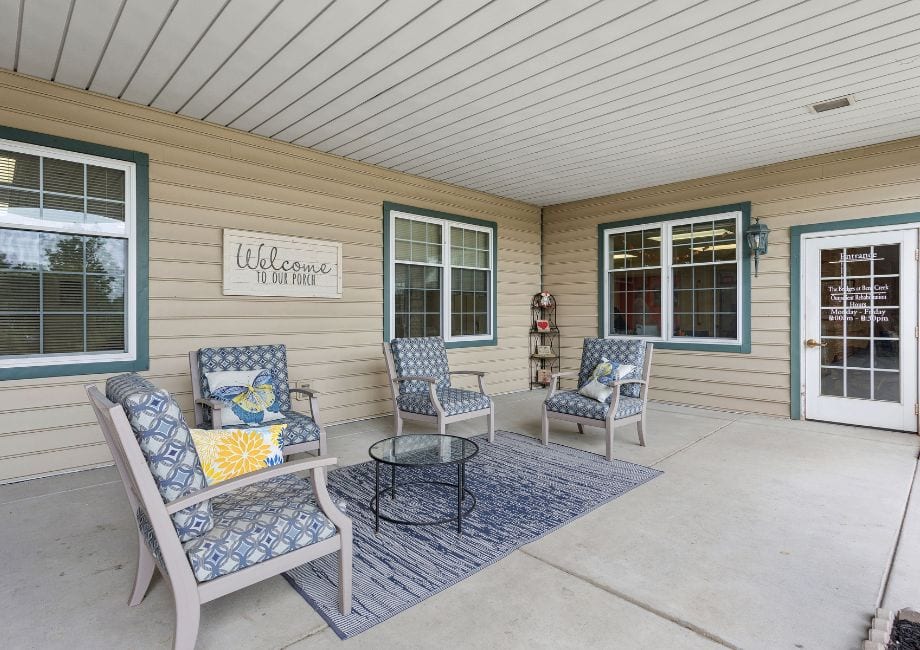Someone with dementia may struggle to stay engaged with their peers as the condition progresses, but finding ways to help a senior stay engaged daily is essential. Some easy games to play with people with dementia include:
- Picture matching
- Gentle chair exercises
- Ball toss
- Sing-along sessions
- Puzzle assembly
- Coloring activities
- Sorting games
- Memory games
- Bingo
There isn’t a perfect game or activity that all seniors enjoy or provides an ultimate benefit. It’s about finding things an older adult enjoys and wants to engage in consistently. This is where a senior can see the benefit of social engagement, physical activity, and cognitive stimulation.
9 Easy & Engaging Games & Activities for Seniors with Dementia
Each senior has unique preferences for activities or games they enjoy. Finding something that keeps them engaged and having fun alone or in group settings is the key.
Picture Matching
Matching games are a classic choice for their simplicity and customizability. For example, use a set of picture cards, either purchased or homemade. Match pairs of images, such as animals or common objects. Games like this make seniors tap into their memory and recognition skills.
Gentle Chair Exercises
Our strength and mobility can decrease with age. So, including gentle chair exercises in a senior’s activity routine can be beneficial. Simple exercises like arm raises and leg extensions while seated can help improve physical health and boost a senior’s mood.
Ball Toss
Many older adults have fond memories of throwing a ball around. This game may take some adaptation for each person’s physical ability. But the game is as simple as gently tossing a soft ball back and forth. This can help boost a senior’s hand-eye coordination and can easily be a social activity for a small group.
Sing-Along Sessions
Music can be a fun way to connect with each other. Try singing familiar songs together. Provide lyric sheets or play music from a device to help facilitate a senior’s engagement.
Puzzle Assembly
Puzzling is a classic way to pass an afternoon. Doing a puzzle requires a senior to practice their problem-solving skills and concentration. The ease of adapting puzzles to various abilities makes it an excellent choice for someone with dementia.
Coloring Activities
Coloring is another fun activity that can be adapted to various ability levels. It can also be adapted to different likes or preferences, depending on the type of coloring. For example, you could offer various coloring books or sheets and various colored pencils or crayons. Water-based paints are something else you could try.
Sorting Games
There are many variations of sorting games a person could try. But the nice thing about sorting skills is it doesn’t necessarily have to be a purchased game. It’s as simple as using objects at hand, such as colored buttons, or sorting playing cards into categories.
Memory Game with Personal Items
The very first game we discussed was picture matching. Another variation to this a senior could try is a memory game that uses their personal items. The game is simple: lay out several personal items, then cover them. Remove one and guess which is missing.
Bingo
Bingo can be an exciting game that provides social engagement and fun competition. It’s easy to adapt for someone with cognitive troubles or other limitations. For example, you could use larger print cards and fewer numbers.
The Importance of Fun & Games
Engaging in activities offers a beacon of light for those navigating dementia. Activities and games can stimulate cognitive function, improve mood, and encourage social interaction. These moments of connection provide a sense of purpose and joy.
Adapting Activities
Every senior with dementia experiences different levels of cognitive ability. This diversity calls for creativity in adapting activities to ensure inclusivity and enjoyment. Some practical tips include:
- Simplify instructions: Use clear, concise language.
- Use familiar items: Incorporate objects that evoke positive memories.
- Adapt game rules: Modify the rules to align with the participant’s abilities.
- Ensure comfort: Create a relaxed, pressure-free environment.
Specific Examples of Adapted Activities
Here are a few examples of how you can tailor games and activities to meet various cognitive levels:
- Memory box: Fill a box with items familiar to the individual. Encourage them to touch and talk about each item, sparking conversations and memories.
- Modified puzzles: Use puzzles with larger pieces. Consider personalizing them with family photos to make the activity more meaningful.
- Gardening: Create small, manageable gardening tasks. The sensory experience of touching soil and plants can be profoundly soothing.
- Art projects: Offer simple art supplies. Painting and drawing allow for self-expression without the need for words.
Fun Games & Senior Living
There’s no denying the importance of a senior staying active and engaged through all stages of their life—regardless of a dementia diagnosis. Senior community life can be a boon in this regard. Whether a senior needs daily assistance, wants to build social relationships, or wants a simplified life, there is often a senior lifestyle option to fit their needs and preferences.
Call our compassionate team at The Bridges at Bent Creek. We’d love to show you the community and how we can support your loved one.










